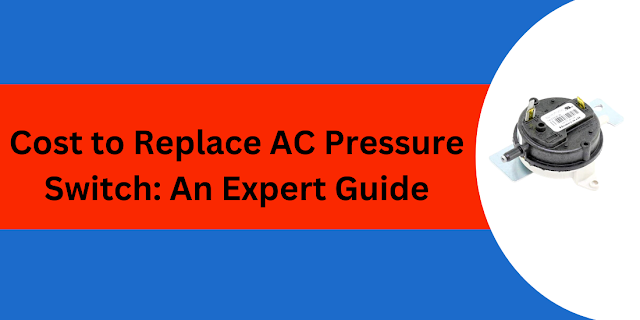Fasco Inducer Motor Won’t Start: Here's How To Fix
When your Fasco inducer motor won’t start, it can prevent your HVAC system from functioning properly. The inducer motor is a crucial component in high-efficiency furnaces, as it helps vent combustion gases outside your home, maintaining safety and optimal performance. If your system isn’t heating as it should or making strange noises, there could be an issue with the inducer motor. In this article, we’ll discuss common causes behind a Fasco inducer motor failing to start and provide practical steps for resolving the issue.
Common Causes and Fixes for a Fasco Inducer Motor That Won’t Start
Here are the main causes behind a Fasco inducer motor not starting, along with their corresponding fixes.
1. Power Supply Issues
The most basic issue could be a loss of power to the inducer motor. If the furnace isn’t receiving power, the inducer motor won’t run. This can happen if the circuit breaker has tripped, a fuse has blown, or the power switch has been turned off.
Fix: Make sure the circuit breaker is in the "on" position first. Reset the breaker if it has tripped. Additionally, inspect and, if required, replace the fuse in the furnace's control panel. Lastly, make sure the furnace’s power switch is turned on. Check to see if the inducer motor begins after the power is restored.
2. Faulty Inducer Motor Capacitor
The capacitor helps start the inducer motor and keeps it running smoothly. A damaged or worn-out capacitor may cause the motor to start poorly or operate inefficiently. Signs of a bad capacitor include humming noises from the motor or an inability to start.
Fix: Check for continuity in the capacitor using a multimeter. Replace the capacitor with a new one if it is damaged (you might also notice a bulging appearance). Be sure to disconnect the furnace from power before working on the capacitor. Replacing the capacitor should restore the motor’s functionality.
3. Blocked or Obstructed Venting System
The inducer motor is responsible for venting gases through the exhaust system. If the venting system is blocked by debris (leaves, dirt, ice, etc.), the motor may overheat or fail to start due to insufficient airflow.
Fix: Inspect the venting system and remove any visible blockages. This involves looking for obstructions in the intake and exhaust vents. Also, ensure that no ice buildup in cold weather could prevent proper airflow. Clearing the vents will help the motor function properly.
4. Malfunctioning Pressure Switch
The pressure switch determines if the proper airflow is being produced by the inducer motor. If this switch malfunctions, the motor will not start as the system won’t receive the signal to begin operation.
Fix: Test the pressure switch using a multimeter. If the switch fails the test or shows no continuity when it should, it may need to be replaced. To find and replace the pressure switch, go to the manual that came with your HVAC system.
5. Motor Wear and Tear
Over time, components like bearings, brushes, or internal parts can wear out in the inducer motor. This may cause the motor to seize or fail to start entirely. In severe situations, the engine can just be too old or broken to work.
Fix: If the motor is making unusual sounds, overheating, or is completely seized, it’s likely time to replace the motor. Inspect the motor for any obvious wear or damage, and if required, get it replaced by a qualified expert.
6. Faulty Circuit Board
The furnace’s circuit board controls various components, including the inducer motor. If the circuit board malfunctions, it may not send the correct signal to the motor, preventing it from starting.
Fix: Check the circuit board for any signs of burn or any other signs of damage on the wiring of the circuit board. The circuit board is usually tested using professional equipment, so if you think that the circuit board is faulty, it is recommended to call an HVAC technician to check it and replace it if necessary.
A Fasco inducer motor that is not starting can be caused by several problems, but proper diagnosis and repair will help to fix the HVAC system. If you are not sure or you do not feel comfortable with the repair process, it is advisable to consult an HVAC technician. It will also help to avoid future issues and guarantee long-term efficiency of the equipment.



Very informative content
ReplyDelete